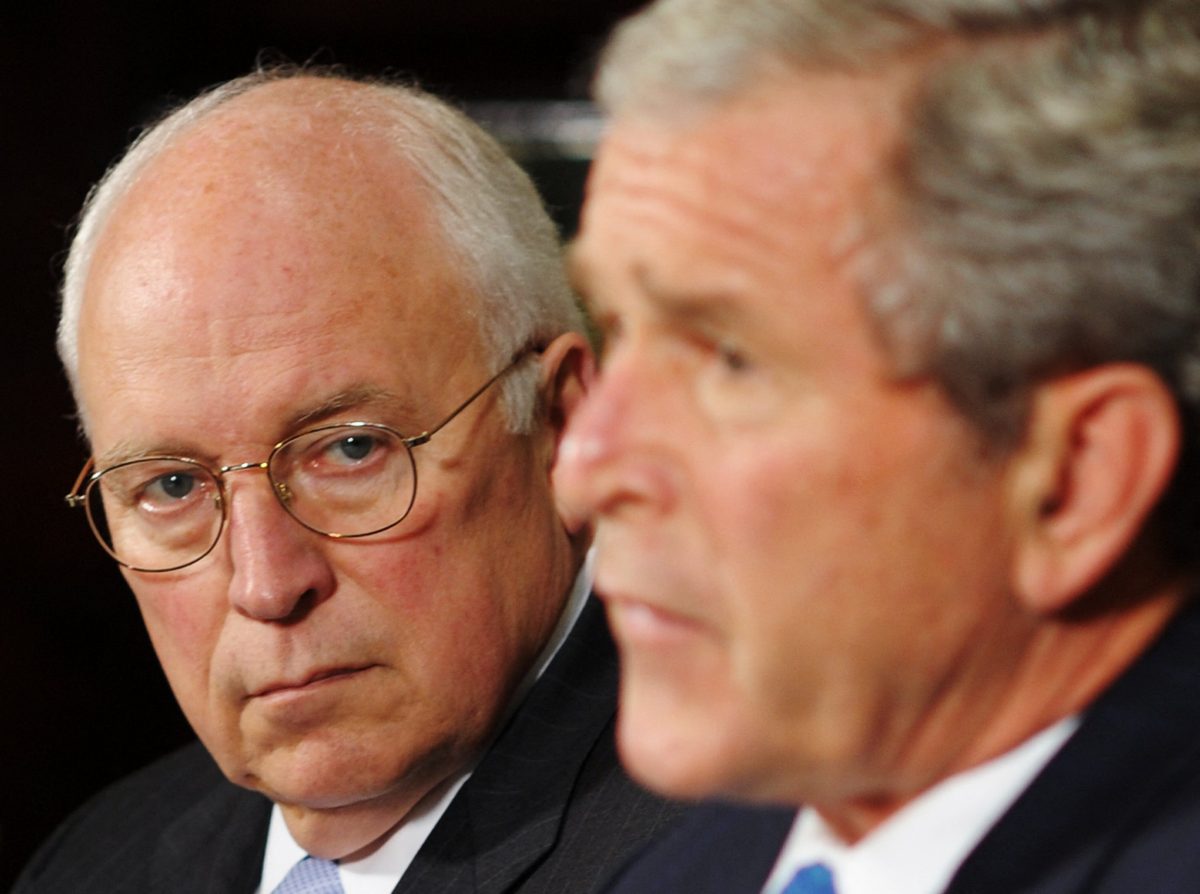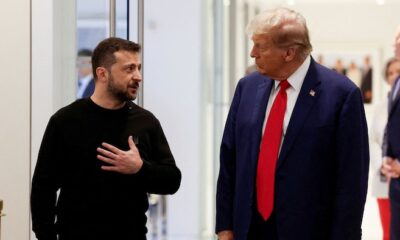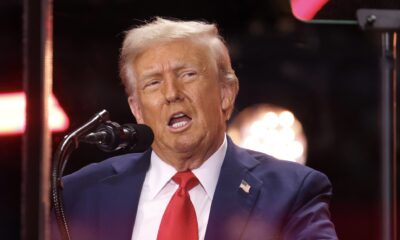World
Dick Cheney’s Political Legacy: From Iraq War Architect to Trump Adversary

Former U.S. Vice President Dick Cheney has transitioned from a controversial figure linked to the Iraq War to a vocal critic of former President Donald Trump. Cheney’s legacy is marked by his role in advocating for military action in the Middle East and endorsing enhanced interrogation techniques, which have drawn significant criticism. In recent years, he has emerged as a prominent voice among Republicans opposing Trump, particularly following the events of January 6, 2021.
In the aftermath of the September 11 attacks, Cheney was in a secure bunker beneath the White House, managing government operations as President George W. Bush was reading to children in Florida. A pivotal moment occurred when a military aide informed him of an incoming plane that was not responding to communication. Cheney’s immediate response was to authorize the shooting down of the plane, demonstrating a decisive and unyielding leadership style that characterized his tenure as vice president.
As a staunch defender of the Republican Party and its principles, Cheney’s support for military intervention and the Iraq War has remained contentious. He has faced backlash for the war’s consequences, including the deaths of approximately 4,500 American servicemen and women and over 200,000 Iraqi civilians. The financial toll of the conflict is estimated to be in the trillions of dollars, and it played a significant role in the rise of extremist groups like ISIS. Cheney’s legacy also includes the controversial torture practices at facilities like Abu Ghraib, which have raised serious ethical questions about American military conduct.
Cheney’s opposition to Trump began to crystallize during the 2015 Republican primaries. Trump criticized the Iraq War as “a big, fat mistake,” while Cheney defended his record and accused Trump of misunderstanding the facts. The rift deepened as Trump’s “America First” nationalism diverged sharply from the traditional Republican neo-conservative stance that Cheney epitomized. Trump’s rejection of military interventions and his skepticism towards NATO challenged Cheney’s long-held beliefs, positioning him as a relic of an older Republican ideology.
The critical turning point in Cheney’s political stance against Trump came after the 2020 presidential election. Disturbed by Trump’s refusal to concede and his attempts to maintain power, Cheney took significant steps to unite former Republican leaders against him. On January 3, 2021, Cheney signed a public letter alongside ten former U.S. Secretaries of Defense, urging Trump to accept the election results and warning against the use of military force to overturn the outcome.
The situation escalated on January 6, when a mob of Trump supporters stormed the Capitol as Congress was set to certify the election results. Cheney’s daughter, Liz Cheney, was present during the attack and later condemned Trump for inciting violence. Her subsequent decision to vote for impeachment positioned both her and her father as outliers within the Republican Party, highlighting a significant ideological split.
At the one-year anniversary of the Capitol riot, both Dick and Liz Cheney participated in a bipartisan ceremony to honor those who defended the Capitol, underscoring their isolation within a party increasingly aligned with Trump. Liz, serving as vice chair of the House committee investigating the January 6 attack, has faced significant backlash from fellow Republicans. Nevertheless, her father expressed pride in her courage and commitment to democracy.
Cheney’s criticism of Trump reached a peak during Liz’s re-election campaign when he recorded an advertisement stating, “In our nation’s 246-year history, there has never been an individual who is a greater threat to our republic than Donald Trump.” His willingness to support a Democrat, Kamala Harris, over Trump reflects his belief that the integrity of the nation supersedes partisan loyalty.
The Republican Party remains divided, with Trump holding considerable influence over its direction. As Trump hints at a potential run for the presidency in 2028, the future of the party remains uncertain. Cheney’s legacy, once defined by his role in the Iraq War, is now intertwined with his opposition to Trump, illustrating a dramatic shift in the political landscape.
As Cheney navigates this complex terrain, he stands as a reminder of the enduring ideological battles within the Republican Party and the challenges it faces in reconciling its past with an uncertain future.
-

 Entertainment3 months ago
Entertainment3 months agoAnn Ming Reflects on ITV’s ‘I Fought the Law’ Drama
-

 Entertainment4 months ago
Entertainment4 months agoKate Garraway Sells £2 Million Home Amid Financial Struggles
-

 Health3 months ago
Health3 months agoKatie Price Faces New Health Concerns After Cancer Symptoms Resurface
-

 Entertainment3 months ago
Entertainment3 months agoCoronation Street’s Carl Webster Faces Trouble with New Affairs
-

 Entertainment3 months ago
Entertainment3 months agoWhere is Tinder Swindler Simon Leviev? Latest Updates Revealed
-

 Entertainment4 months ago
Entertainment4 months agoMarkiplier Addresses AI Controversy During Livestream Response
-

 Science1 month ago
Science1 month agoBrian Cox Addresses Claims of Alien Probe in 3I/ATLAS Discovery
-

 World2 weeks ago
World2 weeks agoBailey Announces Heartbreaking Split from Rebecca After Reunion
-

 Health4 months ago
Health4 months agoCarol Vorderman Reflects on Health Scare and Family Support
-

 Entertainment4 months ago
Entertainment4 months agoKim Cattrall Posts Cryptic Message After HBO’s Sequel Cancellation
-

 Entertainment3 months ago
Entertainment3 months agoOlivia Attwood Opens Up About Fallout with Former Best Friend
-

 Entertainment2 weeks ago
Entertainment2 weeks agoCoronation Street Fans React as Todd Faces Heartbreaking Choice





















